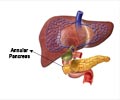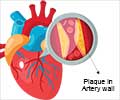New research reveals that while cholesterol-lowering drugs do increase the risk of painful inflammation of the pancreas
New research reveals that while cholesterol-lowering drugs do increase the risk of painful inflammation of the pancreas, the side effect is relatively rare, according to Sonal Singh, M.D., from Wake Forest University School of Medicine, and colleagues.
'Acute pancreatitis is a fairly common condition and cholesterol-lowering drugs have been implicated in some cases,' said Singh. 'Since millions of people around the world take these drugs, our aim was to quantify the risk.'The study, reported in the current issue of Drug Safety, is the first to estimate the risk of pancreatitis from drugs such as Lipitor® and Pravachol®, known as statins. Researchers found that while the drugs increased the risk of pancreatitis by 40 percent – the occurrence is still fairly rare. Out of every 300,000 people taking the drugs for a year, only one would be expected to develop the condition.
'Nevertheless, there are likely to be many millions of people on long-term statins, which means that scores of patients will face the serious complications of acute pancreatitis,' said Singh. Singh said the safety of commonly used medications has come under scrutiny because of post-marketing discoveries that some drugs, such as Vioxx®, have potentially dangerous side effects. He said that drugs are initially tested in studies involving small numbers of carefully selected patients and that some side effects may not show up until millions of people begin taking them.
Singh’s evidence-based study reviewed 33 spontaneous reports of statin induced pancreatitis from the Canadian Adverse Drug Event Monitoring System and 20 published case reports. They also pooled the results from two observational studies on the association between statins and pancreatitis.
'We found that all statins can cause pancreatitis, so switching from one to another will not help,' said Singh. 'The data also suggest that pancreatitis can occur after several months of statin use, suggesting that this is usually not an immediate reaction. We also found both that patients on both low and high doses developed pancreatitis. Hence starting at a low dose of statin may not be sufficient to prevent the side effect of pancreatitis.'
Other findings were that even patients on low doses were susceptible to developing the adverse effect early on, but that those on high doses weren’t susceptible to developing the reaction any earlier, suggesting that pancreatitis doesn’t result from a cumulative dose of statins. Also, in most cases of pancreatitis associated with statins, the reaction is mild and only five deaths have been reported.
Advertisement
Source-Newswise
SRM











